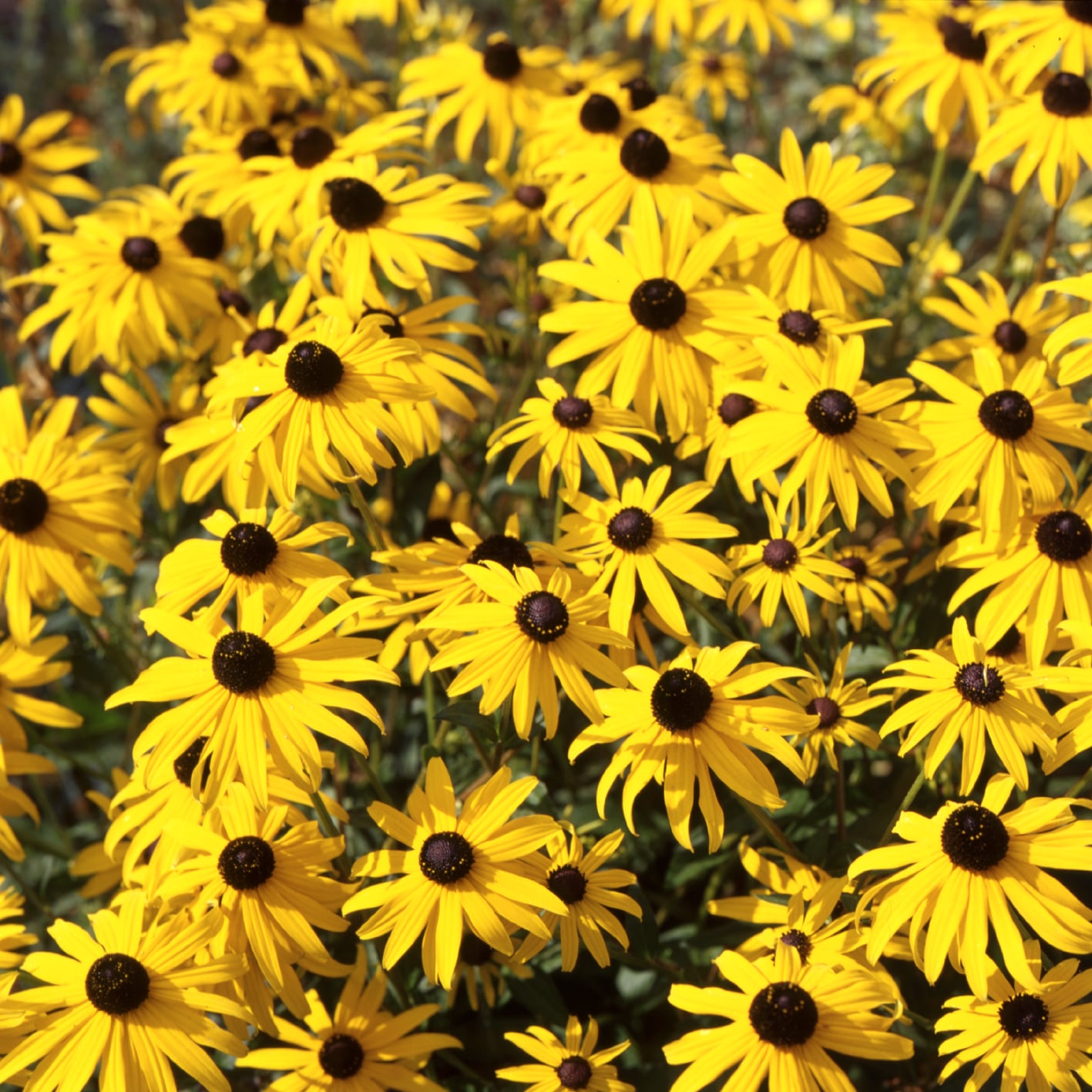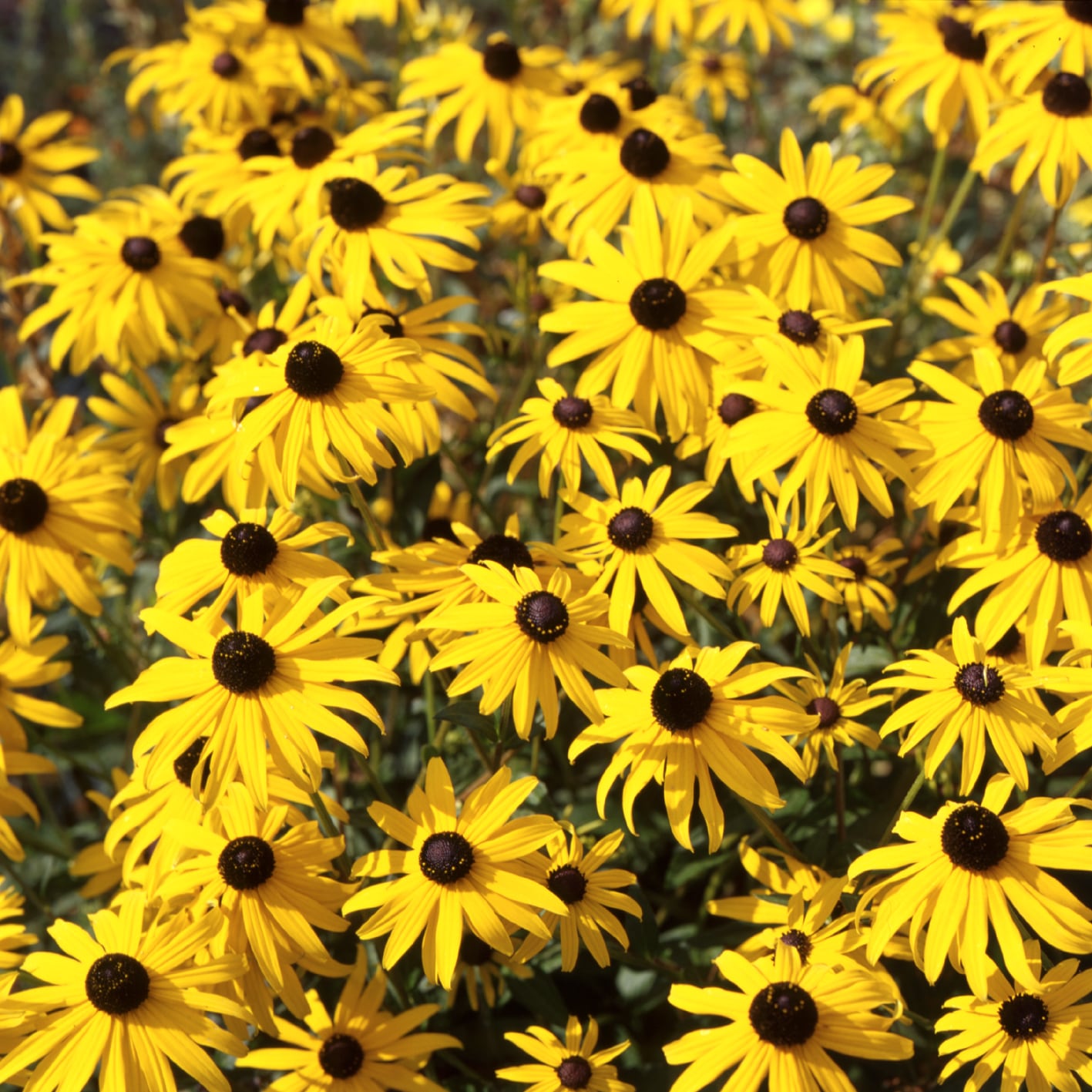Rudbeckia Goldstrum Black Eyed Susan
Rudbeckia Goldstrum Black Eyed Susan
Packet Size: 50 seeds
Couldn't load pickup availability
Rudbeckia ‘Goldsturm’ is a classic Black-eyed Susan — bursting with masses of cheerful, sunshine-yellow blooms from July right through to autumn. It’s a real magnet for bees and butterflies, and if you leave the seedheads standing, you may spot goldfinches snacking on them later in the year. Long-lasting in the garden and the vase, this variety is a hardworking favourite.
🌸 Flowering: July to October
📏 Height: to 60-70cm
🌿Perennial
SOW: from March to April, start seeds in pots or modules of seed compost. Cover lightly with perlite or vermiculite, then pop into a plastic bag and keep at around 18°C. Germination takes about 2 weeks—remove the bag as soon as shoots appear.
GROW: once seedlings have their first true leaves, pot on if needed. Keep moist and grow them on until they’re big enough to harden off. Then plant out 30-45cm apart in a sunny or lightly shaded spot.
ENJOY: a sea of late-season colour, great for pollinators and garden birds. Cut a few for indoors — the bold daisy-like blooms last well and lift any arrangement.
📌USES
Wildlife-friendly
- Bees and butterflies love the rich late-season nectar Rudbeckia provides, especially bumblebees (like Buff-tailed and White-tailed Bumblebees) and butterflies such as Painted Lady and Small Tortoiseshell.
- Leaving seedheads through winter attracts goldfinches and other seed-eating birds, which rely on these nutritious seeds during colder months.
- The sturdy stems and dense foliage offer shelter for beneficial insects like ladybirds and lacewings that prey on aphids.
- Extends pollinator interest into autumn when many flowers are fading, supporting late-season foraging and adding valuable habitat diversity as part of mixed perennial plantings.
Suits
- Sunny borders and mixed flowerbeds
- Late-season colour schemes
- Wildlife-friendly planting
- Prairie-style or naturalistic gardens
- Cut flower patches
- Low-maintenance perennial beds

Collapsible content
Sowing
- Feb
- Mar
- Apr
Harvesting / Flowering
- Jul
- Aug
- Sep

